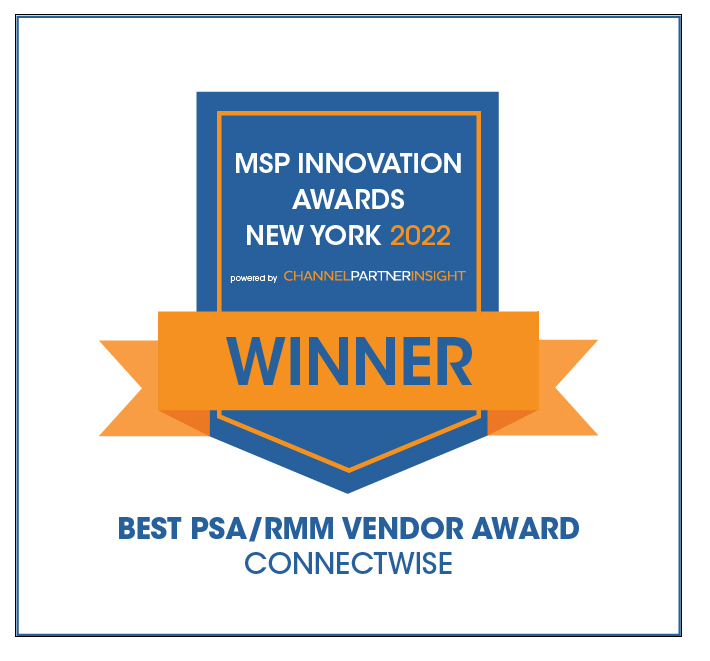MSP cybersecurity threats: a look at SpaceX
If you’ve been following the news lately, you know that SpaceX—the space exploration company founded by Elon Musk nearly 20 years ago—is making a lot of headway in their mission to get to Mars. It’s not a matter of IF SpaceX will make human travel into space possible, but WHEN.
There’s a lot to be learned from the way SpaceX approaches their mission, specifically as it relates to cybersecurity.
It may seem like a stretch to link something like space travel to cybersecurity, but a strong connection can be made based on the way SpaceX runs its business.
Let’s explore how managed service providers (MSPs) can learn from SpaceX.
Bottoms up approach to solving issues
Oftentimes, companies who are venturing into new territory have a tendancy to choose to take what they have and improve it versus stepping back and understanding the problem and being open to starting from scratch. When you think about SpaceX, they could have taken rocket ship components from the 1950s and 60s and thought about what needed to be added to it as had been the approach for the past 50 years. Instead, SpaceX took a ground-up approach and started fresh.
As a result of that ground-up approach, SpaceX streamlined the way they solved problems. A very good example of this is when you look at the views from the inside of the SpaceX Dragon cabin. The difference is obvious when you look at the variety of gauges and screens in the legacy NASA shuttle versus the four clean looking screens in the Dragon cockpit. The SpaceX team focused on what information was needed, leveraged various pieces of data traditionally shown independently, and understood how they could display that data within their consoles to deliver useful messages to astronauts. This changed the way astronauts solved problems. Where in the past, astronauts needed to take multiple pieces of independent data and execute calculations to answer their questions, today, those components work with and talk to each other to give operators the exact information they need in a more holistic way.
In other words, in old shuttles, every single piece of information possible was given to an operator. In SpaceX, only the information that is needed right now is provided.
As an MSP putting this in a cybersecurity lens, it can be very tempting to approach new security problems by taking your existing infrastructure, understanding any gaps, and bolting a few more tools on to try to close them. This approach leaves you with a management approach akin to trying to make sense of all the data points in the legacy shuttle. Instead, you should look at the problems you need to solve and identify the full tech stack and offerings to meet the needs of people today. The goal with cybersecurity is to understand and predict what happens when certain actions are orchestrated together.
Teams joining together
The way that SpaceX has brought the public and private sectors together is a groundbreaking facet that cannot be ignored. For the most part, private companies work independently and the public sector operates in a completely different world. SpaceX is bridging the two together by functioning as a private company working alongside public sector employees.
When you think about MSPs and their clients, much of the work they do is in isolation of one another. A law firm, for example, looks at an MSP as having responsibility for all things technological, while an MSP has no interest in doing what the law firm does. With cybersecurity, this needs to change. MSPs and clients need to see security as a joint approach.
Going back to the law firm, an MSP can do everything on their end to protect their client, but if an employee in that law firm is going to bad websites and using weak passwords, they can create cybersecurity risks that an MSP can’t counteract. It’s not just about an MSP educating their client, but also about the client feeling empowered and believing that cybersecurity is important, not an inconvenience.
If NASA didn’t truly believe that Elon Musk and his team could successfully enter the space industry, they would have never worked with SpaceX to solve hard problems along the way. The mutual belief about the importance of SpaceX’s work was greater than the perceived inconveniences to get there, therefore resulting in a successful joint partnership.
Working towards a bigger mission
The mission to get to Mars is a pretty overwhelming, boil-the-ocean type of task, right? That’s how a lot of people feel about cybersecurity.
The key is to break everything down into smaller pieces that will eventually help you reach your larger goal. SpaceX isn’t just building a rocket and attempting to get to Mars on the first try. They are running small tests little by little that will help drive them towards overall success. Their most recent flight didn’t actually go somewhere or do an activity that hadn’t been done before. But it proved that they could do what has been done before with new equipment, a new approach, and a new team that appears to be capable of their larger goal, and that makes us all feel confident that they will get to that larger goal.
Smaller, more attainable goals are key for any MSP getting into cybersecurity. Focus on the first step and then the second step and so on versus zoning in on how far you are from your end destination.
Additionally, with SpaceX and with cybersecurity, this story is larger than any of us. There’s a social advantage to playing a role here.
SpaceX is trying to help the human race survive after Earth is no longer here. With cybersecurity, MSPs are protecting the people and institutions within our countries and society.
Everyone wants to leave a legacy, and contributing to something that will potentially make our society a better place is a significant way to do so. MSPs need to realize they aren’t just identifying and stopping faceless threats, they are working to stop efforts to destabilize our society, to impact political processes and subvert global crime organizations that are involved in much more than ransomware or selling data. The work MSPs do to protect their clients is truly substantial at a global level.
In conclusion
SpaceX appears to be the future of space travel and will disrupt the way we think about and approach space exploration in the future, the same way cybersecurity is the future for MSPs. It’s the next frontier. While it may be challenging and overwhelming to think about, it’s enormously beneficial and kind of a necessity for us to think about right now.
Anytime there is a revolutionary shift, it creates an opportunity for businesses to decide how to work. SpaceX is changing everything about the way we think about space travel. Cybersecurity is disrupting and changing everything about the way we deliver services to IT clients. MSPs need to embrace that disruption and capitalize on it.


